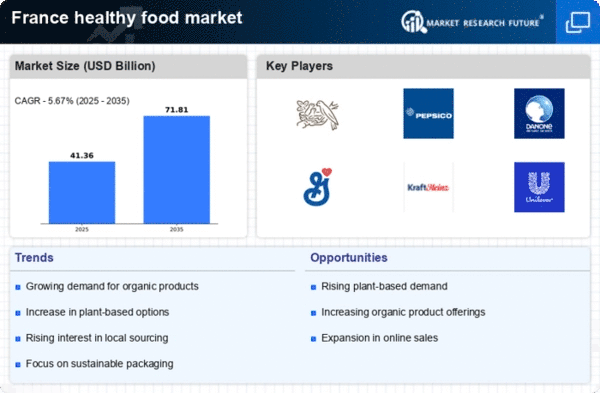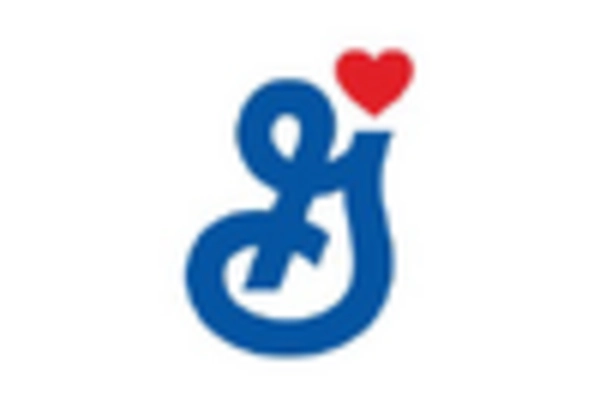Increasing Health Awareness
The growing awareness of health and wellness among consumers in France appears to be a primary driver of the healthy food market. As individuals become more informed about the benefits of nutrition, they are increasingly opting for healthier food options. This trend is reflected in the rising sales of organic and natural products, which have seen a growth of approximately 15% in recent years. The healthy food market is responding to this demand by expanding its offerings to include a wider variety of health-focused products. Furthermore, educational campaigns and initiatives by health organizations are likely to continue influencing consumer choices, thereby propelling the market forward.
Innovative Product Development
Innovation in product development is a crucial driver of the healthy food market in France. Companies are increasingly investing in research and development to create new and exciting healthy food options that cater to evolving consumer preferences. This includes the introduction of functional foods that offer additional health benefits, such as enhanced nutritional profiles or specific dietary needs. The healthy food market is likely to see a surge in innovative products, as brands strive to differentiate themselves in a competitive landscape. This focus on innovation may not only attract health-conscious consumers but also expand the overall market.
Government Initiatives and Regulations
Government policies and regulations aimed at promoting healthier eating habits are significantly impacting the healthy food market in France. Initiatives such as the Nutri-Score labeling system, which provides consumers with clear nutritional information, are designed to encourage healthier food choices. The healthy food market is likely to benefit from these regulations, as they create a more informed consumer base. Additionally, funding for programs that support local agriculture and organic farming is expected to enhance the availability of healthy food options. As a result, the market may experience growth driven by both consumer demand and supportive government actions.
Rise of E-commerce and Online Shopping
The shift towards e-commerce and online shopping is transforming the healthy food market in France. With the convenience of purchasing food online, consumers are increasingly turning to digital platforms to access a wider range of healthy food products. This trend is supported by data indicating that online grocery sales have surged by over 30% in recent years. The healthy food market is adapting to this change by enhancing online presence and offering home delivery services. As more consumers prioritize convenience and variety, the market is likely to see continued growth in e-commerce, which may reshape traditional retail dynamics.
Sustainability and Ethical Consumption
Sustainability concerns are becoming a pivotal factor influencing consumer choices in the healthy food market. French consumers are increasingly seeking products that are not only healthy but also environmentally friendly. This shift towards ethical consumption is reflected in the rising demand for sustainably sourced ingredients and eco-friendly packaging. The healthy food market is responding by implementing sustainable practices and promoting transparency in sourcing. As consumers become more conscious of their environmental impact, the market may witness a significant transformation, with sustainability becoming a key driver of growth.
















